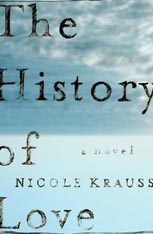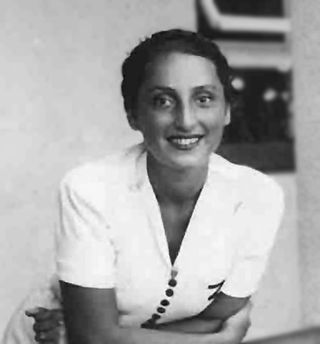
Stanisław Herman Lem was a Polish writer. He was the author of many novels, short stories, and essays on various subjects, including philosophy, futurology, and literary criticism. Many of his science fiction stories are of satirical and humorous character. Lem's books have been translated into more than 50 languages and have sold more than 45 million copies. Worldwide, he is best known as the author of the 1961 novel Solaris. In 1976 Theodore Sturgeon wrote that Lem was the most widely read science fiction writer in the world.

Joyce Carol Oates is an American writer. Oates published her first book in 1963, and has since published 58 novels, a number of plays and novellas, and many volumes of short stories, poetry, and non-fiction. Her novels Black Water (1992), What I Lived For (1994), and Blonde (2000), and her short story collections The Wheel of Love (1970) and Lovely, Dark, Deep: Stories (2014) were each finalists for the Pulitzer Prize. She has won many awards for her writing, including the National Book Award, for her novel Them (1969), two O. Henry Awards, the National Humanities Medal, and the Jerusalem Prize (2019).

Erasure poetry, or blackout poetry, is a form of found poetry or found object art created by erasing words from an existing text in prose or verse and framing the result on the page as a poem. The results can be allowed to stand in situ or they can be arranged into lines and/or stanzas.

Bruno Schulz was a Polish Jewish writer, fine artist, literary critic and art teacher. He is regarded as one of the great Polish-language prose stylists of the 20th century. In 1938, he was awarded the Polish Academy of Literature's prestigious Golden Laurel award. Several of Schulz's works were lost in the Holocaust, including short stories from the early 1940s and his final, unfinished novel The Messiah. Schulz was shot and killed by a Gestapo officer in 1942 while walking back home toward Drohobycz Ghetto with a loaf of bread.

Jacek Józef Dukaj is a Polish science fiction and fantasy writer. His fiction explores such themes as alternate history, alternative physics and logic, human nature, religion, the relationship between science and power, technological singularity, artificial intelligence, and transhumanism. He is regarded among the most popular Polish contemporary science fiction authors.

Complicité is a British theatre company founded in 1983 by Simon McBurney, Annabel Arden, Marcello Magni and Fiona Gordon. Its original name was Théâtre de Complicité. The company is based in London and uses extreme movement to represent their work, with surrealist imagery. Its work has been influenced by Jacques Lecoq. The company produced their first performance in 1983. In 1985 they won the Perrier Comedy Award at the Edinburgh Fringe Festival. Their productions often involve technology such as projection and cameras, and cover serious themes.

Jacek Maria Dehnel is a Polish poet, writer, translator and painter.
Street of Crocodiles is a 21-minute-long British stop-motion animation short subject directed and produced by the Brothers Quay and released in 1986.

Jerzy Pilch was a Polish writer, columnist, and journalist. He is the winner of the 2001 Nike Award for his novel Pod Mocnym Aniołem. Critics have compared Pilch's style to Witold Gombrowicz, Milan Kundera, or Bohumil Hrabal.
Karen Press is a South African poet and translator.

The History of Love: A Novel is the 2005 novel by the American writer Nicole Krauss.The book was a 2006 finalist for the Orange Prize for Fiction and won the 2008 William Saroyan International Prize for Writing for fiction.

Zuzanna Ginczanka, pen nameZuzanna Polina Gincburg was a Polish-Jewish poet of the interwar period. Although she published only a single collection of poetry in her lifetime, the book O centaurach created a sensation in Poland's literary circles. She was arrested and executed in Kraków shortly before the end of World War II.

Wydawnictwo Literackie is a Kraków-based Polish publishing house, which has been referred to as one of Poland's "most respected".

Karol Kuryluk was a Polish journalist, editor, activist, politician and diplomat. In 2002, he was honored by Yad Vashem for saving Jews in the Holocaust.

Tree of Codes is an artwork, in the form of a book, created by Jonathan Safran Foer, and published in 2010. To create the book, Foer took Bruno Schulz's book The Street of Crocodiles and cut out the majority of the words. The publisher, Visual Editions, describes it as a "sculptural object." Foer himself explains the writing process as follows: "I took my favorite book, Bruno Schulz’s Street of Crocodiles, and by removing words carved out a new story".

Agata Tuszynska is a Polish writer, poet and journalist.

Debora Vogel (1900–1942) was a philosopher and poet who published work in Yiddish and Polish. During World War I her family fled to Vienna and moved later to Lviv, where Vogel spent most of her life. She studied Philosophy and Psychology at the Jan Kazimierz University.

This bibliography of Stanisław Lem is a list of works about Stanisław Lem, a Polish science fiction writer and essayist.

The Mask is a science fiction techno horror short story by Polish writer Stanisław Lem written in 1974 and first published in literary magazine Kultura that year. It was the title story in a short story collection published in 1976 by Wydawnictwo Literackie. It is a story of an assassin android she-robot programmed both to love and to kill its human target and who gradually becomes aware of herself and her programming.

















